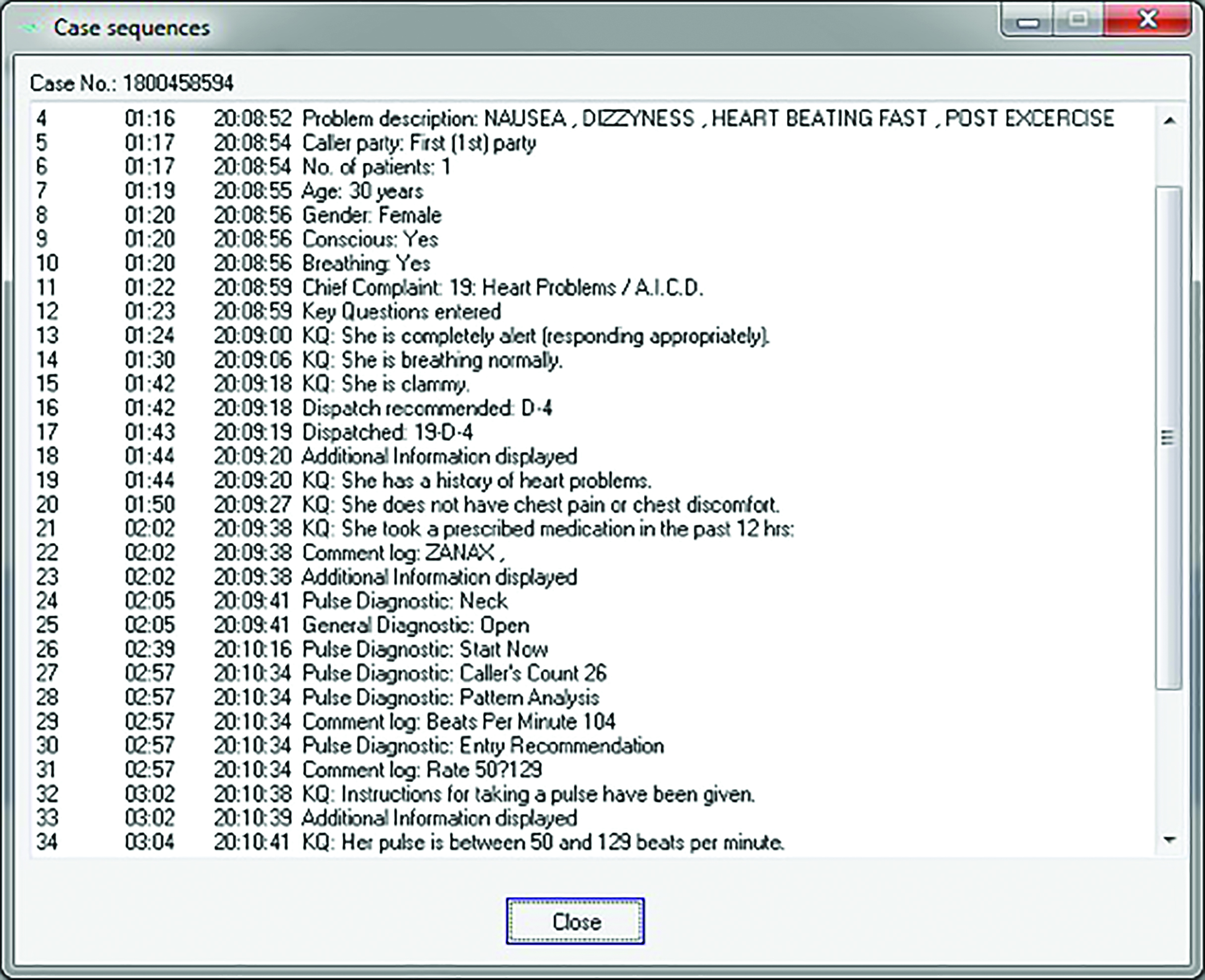

New Twist On ‘Time Will Tell’ In Dispatch

Ask Doc
Jeff Clawson, M.D.

Doc,
I have recently been informed that in certain circumstances (I am not sure what circumstances as I have not been able to replicate this) Paramount will skip a Key Question.
I have just listened to a call where the EMD, using Protocol 19: Heart Problems/A.I.C.D., asked if the patient was clammy (she was), sent a 19-D-4, and went on to ask if she had any chest pain/discomfort.
The question “Do you have a history” was not asked, yet it was answered in ProQA®!
I have had reports of this happening before but have never been able to replicate it on my laptop or on the live system!
Has anyone else reported this before?
Kindest regards,
James D. Gummett
Quality Assurance Manager
Quality Assurance Department (Control services) HQ & BOW
London Ambulance Service
London, U.K.

James,
Great to hear from you and looking forward to buying you a “few” gin-and-tonics (wink, wink) in Vegas. In reviewing this call, while I can’t prove it, I am almost sure that this is a case of “happy fingers” wherein the EMD accidentally hit the <enter> or <space bar> keys that quietly (nothing heard on the tape) “answered” this question. This also answers why you didn’t hear this question asked on the audio review.
Since the history KQ appears, right after the send point, with the green cursor starting on the “Yes” answer choice, this would clearly be the result—if my premise is correct. If another answer (any below it) was achieved, I wouldn’t make this assertion.
Another finding in support of my theory, is that the time shown in the Case Sequences shows only one second between the send time and when this question was answered—not nearly time enough to have asked, then answered, and moved on regarding this question. This is almost “proof” that what I think happened, actually happened.
I am sharing this assessment with others involved with the software and the logic system. If some other angle on this is shared, we will then vigorously evaluate this situation.
Prepare for Vegas, because what happens in Vegas must stay in Vegas! …
See you there! ... Doc
Doc’s final comments:
This particular situation can be considered in a number of ways, but the first is to at least entertain that the software or its logic is not always at fault when something untoward is experienced by the emergency dispatcher using it. I must admit, I didn’t do this myself on the initial read through of this case until I did my required “due diligence” to look at the full case record, or in many other cases, actually listen to the case—not just accept someone else’s description or interpretation of it.
Quality assurance is also an essential part of the protocol and software development process, and not just about the emergency dispatchers using it. We at PDC™ and the Academy attempt to require a reasonably robust process within PDC’s Core Software Development Division to find issues with the various programs we deal with, prior to release, whether ProQA, AQUA®, ACE and Supervisor Portals, or College of Emergency Dispatch CDE and lesson software, and even other internal software and logic diagnostics such as Zarkov that you have likely never heard of (more about this one in the future).
Like with any evaluation, it’s important to always look beyond the obvious to be sure we have the “Big Picture” on each situation we are asked to evaluate before we make a conclusion. Like with anyone, I almost missed checking the right things on this one. James, one less gin-and-tonic for me … Doc







